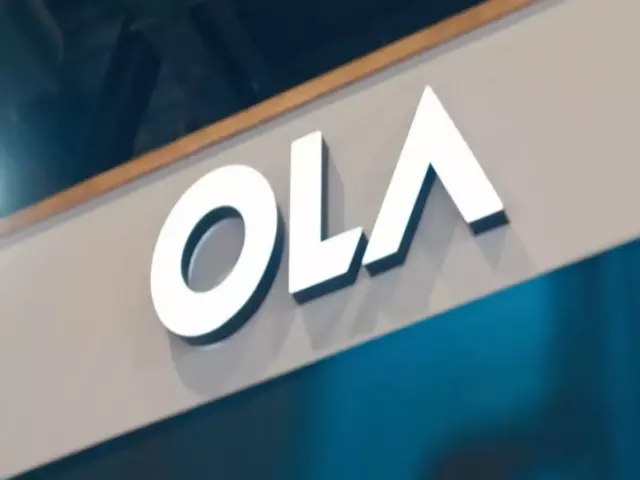
The electric vehicle (EV) revolution in India, spearheaded by companies like Ola Electric, has been electrifying the nation’s roads. But lately, a storm has been brewing behind the scenes, casting a shadow on Ola Electric’s ambitious journey. What exactly is going on with the company’s dealings with registration agencies and why has it landed under government scrutiny?
For months, whispers of discrepancies in Ola Electric’s reported sales figures and actual vehicle registrations have been circulating. The official government portal, Vahan, which tracks vehicle registrations across the country, painted a starkly different picture compared to the numbers Ola Electric claimed to have sold. This gap widened significantly in February 2025, raising eyebrows within the industry and prompting government intervention.
Ola Electric reported selling a whopping 25,000 electric scooters in February. However, the Vahan portal recorded only around 8,600 registrations for the same period. This massive difference – a shortfall of nearly 65% – triggered an investigation by the Ministry of Heavy Industries (MHI). The MHI directed the Automotive Research Association of India (ARAI) to conduct a thorough probe into the matter, examining potential violations of company laws and regulatory standards.
The investigation isn’t solely focused on the sales-registration mismatch. ARAI is also looking into allegations that Ola Electric sold scooters without valid trade certificates in some authorized dealerships. Furthermore, the probe aims to verify if the company has adequate service center coverage in all the cities where it operates. These are crucial aspects of regulatory compliance for any vehicle manufacturer in India.
Adding fuel to the fire, regional transport offices (RTOs) also stepped in. In Maharashtra, RTO officials in Mumbai and Pune conducted raids on several Ola Electric showrooms. These inspections revealed compliance violations, leading to the seizure of 36 electric scooters. The primary concern was the alleged misuse of a single trade certificate for multiple outlets, a practice not permitted under the Central Motor Vehicles Act. Similar issues surfaced in Punjab, where several Ola Electric outlets reportedly shut down, and in Jabalpur, where authorities issued notices to the company for selling unregistered scooters without valid trade certifications.
Ola Electric, however, has maintained that the discrepancies are due to a temporary backlog in vehicle registrations. The company attributed this backlog to ongoing negotiations with its vehicle registration vendors. In a statement, Ola Electric claimed that the backlog was being cleared rapidly, with daily registrations exceeding 50% of their average daily sales over the past three months. They also stated that 40% of the February backlog had already been resolved and the rest would be cleared by the end of March 2025.
The company went further, alleging that certain media outlets and vested interests were deliberately misrepresenting the situation as a regulatory issue through misinformation campaigns. Ola Electric suggested that these reports intensified after the company decided to discontinue contracts with two national vendors responsible for handling vehicle registrations, as part of a strategy to streamline operations and improve profitability.
Adding another layer to this complex situation was a legal tussle with Rosmerta Group, a vehicle registration service provider. Rosmerta Digital Services filed an insolvency petition against Ola Electric Technologies, a subsidiary of Ola Electric, citing unpaid dues of approximately ₹18-20 crore. Rosmerta, which also manufactures high-security number plates, claimed that Ola Electric Technologies had defaulted on payments for services rendered.
However, this dispute was recently resolved. Ola Electric announced that it had settled all outstanding dues with Rosmerta Group, amounting to ₹26.75 crore. Following the settlement, Rosmerta Group withdrew its insolvency petitions filed with the National Company Law Tribunal (NCLT) in Bengaluru. Both parties confirmed that there are no further disagreements, and their future relationship will be governed by the terms of the settlement agreement.
Despite these assurances from Ola Electric, the government scrutiny remains. The MHI has reportedly sent letters to the company seeking detailed information on the sales and registration figures, as well as compliance with trade certificate requirements. While Ola Electric has stated that there are no ongoing regulatory or legal proceedings against it, the outcome of the ARAI investigation could have significant implications for the company and the broader EV sector.
This isn’t the first time Ola Electric has faced regulatory headwinds. Earlier in 2025, the Securities and Exchange Board of India (SEBI) issued a warning to the company over disclosure lapses. These repeated instances of scrutiny raise questions about the company’s operational practices and transparency.
The recent controversies have also impacted Ola Electric’s stock performance. While the stock saw a slight recovery after hitting a record low following the insolvency petition news, it is still significantly down since its listing in August 2024. This underperformance reflects investor concerns about the company’s financial stability and long-term prospects amidst these regulatory challenges and market uncertainties.
The situation highlights the growing pains often associated with rapid expansion, especially in a highly regulated sector like the automotive industry. While Ola Electric has undoubtedly played a crucial role in accelerating EV adoption in India, these recent events serve as a reminder of the importance of robust compliance practices and transparent communication.
As the ARAI investigation progresses and the government continues its scrutiny, the coming weeks will be crucial for Ola Electric. The company’s ability to address the concerns raised, streamline its registration processes, and maintain consumer trust will be vital for its continued success in the competitive Indian electric vehicle market. The nation’s electric dream might have hit a temporary speed bump, but whether Ola Electric can navigate this challenge effectively remains to be seen.


















